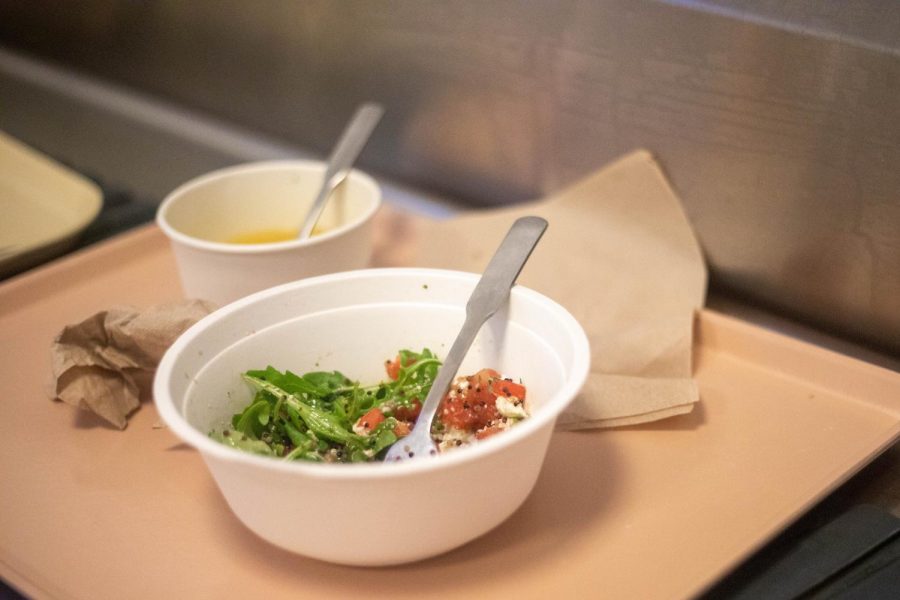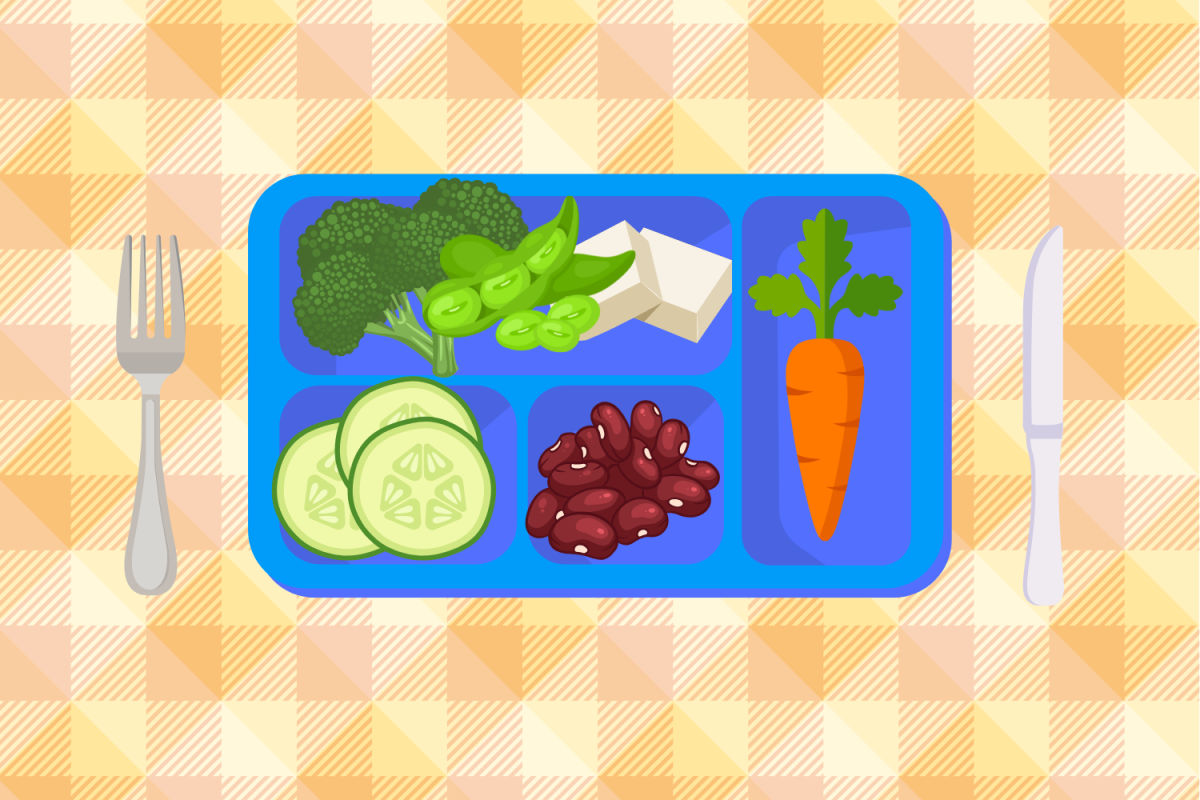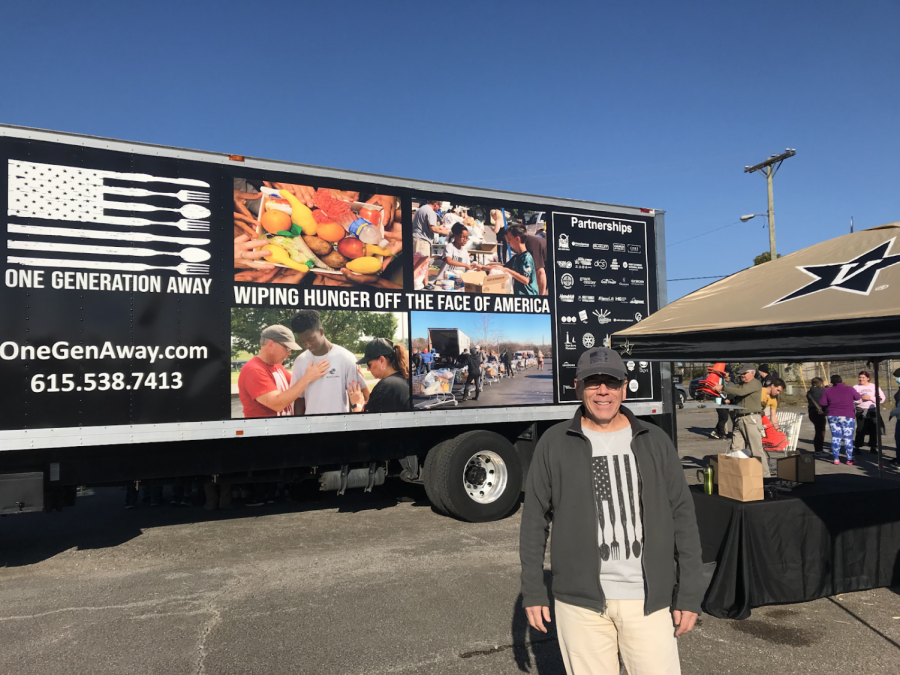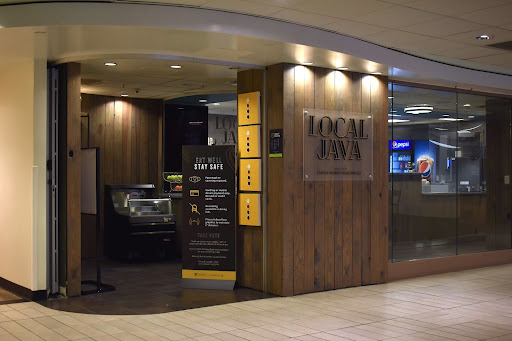Following student-led conversations on campus, VSG and Campus Dining worked to begin a food donation program where students can donate their extra meal swipes to other students through the GET app. Students who want to receive donated meals can apply to receive up to five meals per week through the Campus Dining website.
Students can donate up to five guest swipes, formerly ‘flex meals’ per semester. The application to receive the swipes can be completed on the Campus Dining website and is then sent to the financial aid office which determines eligibility for swipes based on demonstrated need. Students can apply at the end of each month, and the swipes will be added to their Commodore Card if they are found eligible. Students applying now who qualify for the program will receive the extra meal swipes Oct. 1.
“Food insecurity has been a big topic on campus,” VSG President Frances Burton said. “A big issue is during school breaks where some students stay on campus due to financial circumstances or just make the choice to but might not have the meal swipes available.”
Senior Rachel Gross kicked off the conversation to start the meal swipe program the summer of 2018. After meeting with an organization she found through Hillel and its Challah for Hunger Program called the Campus Hunger Project, she was able to meet with students from universities all over America with the goal of fighting food insecurity. Students who are a part of Challah for Hunger bake and sell challah bread twice a month to raise money for local and national hunger-fighting organizations.
“Back then I wasn’t really aware of the whole hunger fighting side of [Challah for Hunger],” Gross said. “I just thought it was a fun activity to do with my friends at Hillel, but once I learned more about the issue of food insecurity I decide to become really invested in it and it has been such a big part of my college life.”
The Campus Hunger Project tasked the students that attended its program to combat food insecurity on school campus. Gross chose to partner with Swipe Out Hunger, a group of student leaders across American universities who work together to devise proposals for the meal swipe programs.
“I personally haven’t experienced food insecurity in college, but I know a lot of people who are, Gross said. “Hearing personal anecdotes of people who are struggling to find food was just really impactful to me because I didn’t realize it was such a problem until I started talking about it, and the more I talked about it the more other people talked about it.”
Gross had meetings with both VSG and Campus Dining who were very receptive to this idea, she said. After months of logistical conference calls and meetings, the program was launched Sept. 17.
The program will be particularly effective in redistributing meals because it lets students receive swipes anonymously, since all it takes for students to use their received meals is their regular Commodore Card, Gross said. Other solutions, such as food banks or separate meal cards, would be more noticeable and may deter students from getting help due to the stigma around financial diversity.
Another program allowing students to donate surplus food from their meal plan is Share-a-Side. This program differs from the meal swipe donation program because it allows students to donate a side to the Second Harvest Food Bank in Nashville or provide disaster relief in response to natural disasters. To do this, a student can directly donate an unused side at the cash register at a Campus Dining location. This program became year round this fall.
Campus Dining is also working on a program to combat food insecurity over breaks, Campus Dining Executive Director of Business Services David ter Kuile said.
A holiday meal program was implemented by Campus Dining beginning winter break of 2018. The program was designed as a collaboration between VSG and Campus Dining. It functions by loading a combination of meal money and meals onto the Commodore Cards of selected students with demonstrated financial need each morning of a break. Each evening, the unused amount is removed.
“Even just the sayings of broke college students eating ramen on campus, it’s not funny” Gross said. “Ramen is not a reliable nutritious way of having access to food and that’s kind of the definition of food insecurity. Getting away from this rhetoric and leaning more towards increasing access to consistent nutrition, nutrition as food is really important.”










